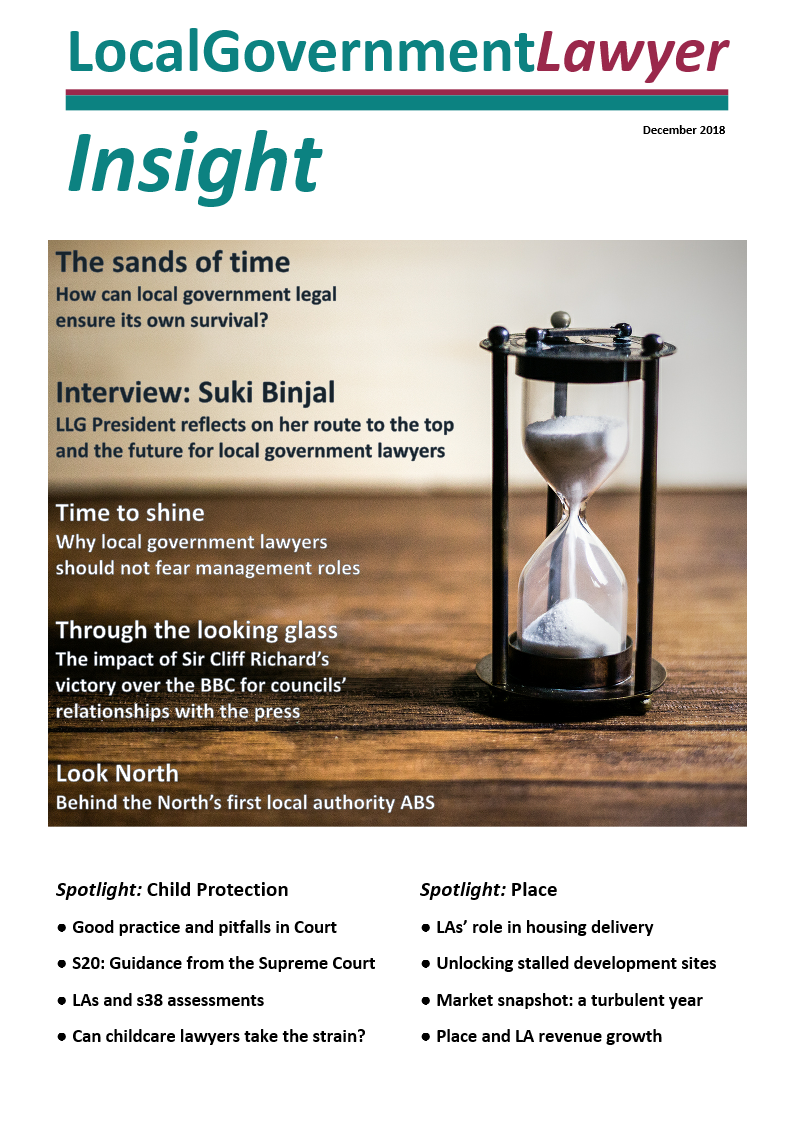Local authorities and s.38(6) assessments
- Details
The Court of Appeal has issued a timely reminder in a case where a judge had ordered a local authority to fund a s38(6) assessment, writes Rebecca Cross.
 It has become increasingly difficult to persuade the Court to grant ANY application for an expert report, let alone an application under section 38(6) for an assessment of the child. This issue was revisited by the Court of Appeal in Re Y (A Child) (S.38(6) Assessment) [2018] EWCA Civ 992.
It has become increasingly difficult to persuade the Court to grant ANY application for an expert report, let alone an application under section 38(6) for an assessment of the child. This issue was revisited by the Court of Appeal in Re Y (A Child) (S.38(6) Assessment) [2018] EWCA Civ 992.
A consultant psychiatrist recommended that the parents and J (aged 7 months) should be assessed at Phoenix Futures, an agency that specialises in drug addiction. Of the seven questions in the letter of instruction, only one related to J and her mother. The others dealt solely with the mother.
The local authority opposed the application on the basis that this was not an assessment of the child and, therefore, fell outside the Court’s powers under section 38.
The Judge at first instance granted the application and ordered the local authority to fund the assessment.
The local authority successfully appealed. The Court of Appeal referred to:
(a) Re C (a minor) (Interim Care Order: Residential Assessment) [1997] 1FLR 1, where the House of Lords stated that “the proposed assessment must...be an assessment of the child”.
(b) Re G (Interim Care Order) [2006] 1 FLR 601, where House of Lords stated:
i. that an assessment to give a parent the opportunity to change through therapy does not come within 38(6);
ii. what is required is an assessment of the child, including her relationship with her parents, risk, and how any risk can be managed.
In Re Y, the Court of Appeal stated that the court should ask itself two questions:
(a) is this a proposal for an assessment that falls within s38(6); and
(b) if so, is the assessment necessary to assist the Court to resolve the proceedings justly?
In Re Y, the Court of Appeal found that what was proposed was a unit that would assist the parents to become drug free and NOT a unit designed to assess the mother and the child.
Accordingly, the proposed assessment fell foul of both Re C and Re G, as well as section 38(6) itself. In addition, there was a question mark as to whether the assessment was necessary as there was already a wide range of information available to the court, namely:
(a) evidence from the social worker;
(b) evidence from the Westminster Drugs Project;
(c) hair strand and urine tests;
(d) an independent social worker’s assessment; and
(e) a psychiatric assessment.
Accordingly, the appeal was allowed.
Rebecca Cross is a barrister at St Ives Chambers.
https://www.stiveschambers.co.uk/barristers/rebecca-cross/
https://www.stiveschambers.co.uk

This article was first published in the December 2018 edition of Local Government Lawyer Insight, which can be accessed at http://www.localgovernmentlawyer.co.uk/insight Insight is published four times a year and is circulated free-of-charge to all Local Government Lawyer newsletter subscribers (click here to subscribe) in electronic format. A single hard copy is also circulated to all local authority legal departments in England and Wales. Also in this issue: Sands of time Interview: Suki Binjal Time to shine Through the looking glass Look North Spotlight: Child Protection
Spotlight: Place
|














































